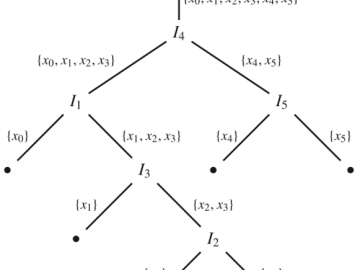
We present a rigorous mathematical analysis of the isolation random forest algorithm for outlier detection.

We present a rigorous mathematical analysis of the isolation random forest algorithm for outlier detection.

A multidisciplinary team of researchers from Oak Ridge National Laboratory (ORNL) propose a forensic framework to decide if recorded controller area network (CAN) traffic, a de facto automobile communication standard, contains masquerade attacks.

We successfully utilized OCLF ORNL GPU computing resources for efficient uncertainty analysis, which addressed the computational overhead caused by our proposed probabilistic models.

We propose a novel deep learning method that achieves 170X average speed up compared to the original probabilistic marching cubes algorithm [1] implementation and performs predictions with an accuracy comparable to the original algorithm.

We propose the application of various visualization techniques, such as probability maps, confidence maps, level sets, and topology-based visualizations, to effectively communicate the uncertainty in source localization with clinicians.

A multi-university team first reported a unique lead-free ferroelectric compound - (Ca,Sr)3Mn2O7, which belongs to a class of materials described as hybrid improper ferroelectrics.
A multidisciplinary team of researchers has developed an adaptive physics refinement (APR) technique to effectively model cancer cell transport.

We present an intercomparison of a suite of high-resolution downscaled climate projections based on a six-member General Climate Models (GCM) ensemble from the 6th Phase of Coupled Models Intercomparison Project (CMIP6).

A web-based GUI for INTERSECT has been created which allows a user to configure an experiment on an electron microscope, setting such parameters as maximum number of steps for the machine learning algorithm to perform.

Researchers at Oak Ridge National Laboratory developed a new parallel performance portable algorithm for solving the Euclidean minimum spanning tree problem (EMST), capable of processing tens of millions of data points a second.

